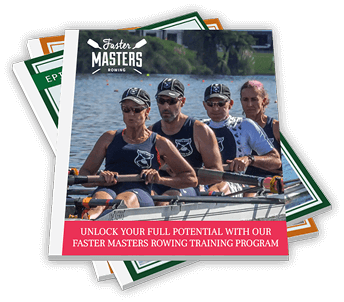Getting coached sometimes feels like being told you are wrong all the time. What can you do as an athlete to enable yourself to receive critiques and not feel vulnerable?
Resource: How to hire a rowing coach
3 Value Bombs
- Separate the message from the emotion
- Confirm you've understood correctly
- See feedback as part of improving your rowing
Timestamps
01:00 Criticism is part of the learning process
Improving requires us to know what we are doing right, what we're doing less well and how to change. It is hard not to feel it's personal because it's directed at you. Separate the message from the emotion and the personality giving the feedback. Peer-to-peer coaching in the boat where you don't have a coach enables you to give and receive feedback in an environment where it's appropriately received and acted upon.
03:30 John Zarao [captain sabre fencing team 1984 Olympics] quote
"Competitive sport is a cruel mistress. You are competing on merit, but you can have a gad day - like everyone else. You must listen (not if) to those who know what they're talking about."
John Zarao
04:30 A learning opportunity - constructive criticism
Do I want to improve the way I row and scull? If the answer is yes, you have to be open to hearing information about your current state and how to get to a desirable future state. 1 - What is the message being given to you? 2 - Does this message apply to me? 3 - If yes, how can I use it to improve my rowing?
06:00 How you get the information and feedback. Work with the person giving you the feedback. - repeat back to them in your own words what you think they have said to you. Clarify the message until they say to you "that's right" so there's no ambiguity. - challenge your defensiveness and work out why you are so bothered by this message. - focus on the message not the delivery. - apply the message to your rowing / sculling
08:00 Giving criticism / feedback
You have to prepare the athlete to receive your message first. Few people change their position after being shouted at. Ask the athlete "May I give you some feedback?" and stay silent until they answer yes. Because if they aren't ready to receive your message it won't land. "Before I give you advice can I ask if you are interested in improving your technique?" and get the answer yes to this question too.
10:45 Coaches giving feedback
Contextually it's important your athletes know that you only give feedback to athletes you think can improve. Few coaches invest time in someone who you think cannot change. See the feedback as respect from your coach that you're a worthwhile athlete to invest their time and energy in. Receiving love and respect from your coach is desirable and the pathway is changing something which isn't right in your rowing just now.
13:30 Ask your coach "Where am I standing right now in the crew and where do you see me at the end of the season?" This helps you to put a timeline onto your improvement and to understand where you stand compared to others in the group. The attention you are getting may be because you are on a good pathway to improvement. Help each other to receive messages which are not 100% positive is a good pathway to becoming a better rower.
Want easy live streams like this? Instant broadcasts to Facebook, YouTube, LinkedIn. Faster Masters uses StreamYard: https://streamyard.com/pal/d/5694205242376192

